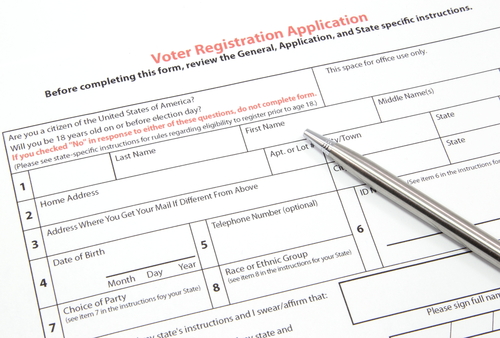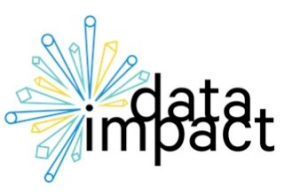Innovation
Insights from our Leaders

Through Experian’s long-standing partnership with the UCI Paul Merage School of Business, I had the pleasure of participating recently in UCI’s Distinguished Speaker Series. I spoke about the role big data plays in today’s economy, and how data is being used as a force for good. My message to the 300+ attendees was clear – big data is everyone’s business. And it’s only going to get bigger. We have 90% more data today than we had just 2 years ago. What will happen in the next 2 years, much less the next 10? As big data gets bigger, how can we use it in even better ways, as a much greater force for good in society? Where we’re headed In the next decade, I predict that: Every single industry – from food service to entertainment to technology to retail – will be using big data in some way. We’re moving quickly in that direction already. A recent Gartner survey found that three-quarters of companies plan to invest in big data over the next 2 years. We’ll be using big data to cure big diseases. I believe we can fully cure cancer and HIV, among others, if we can tap into new insights from wearable technologies and genetic mapping, and put all that data to good use. Big data will help our economy improve. The presidential candidates may argue about the best way to create jobs and increase wealth, but any way you look at it, big data has to be a part of it. The more we can capture trend data on spending patterns and investment returns, the more we can be smart about where we spend our tax dollars, and even how we manage our personal finances. In other words, big data is going to become the backbone of society in ways we least expect today. Sometime in the future, when you go to a museum or an art gallery, big data will make your experience more personal, more customized, and more relevant to your interests. We’re starting to see hints of this now. Think of how you might receive coupons on your phone for cheaper drinks at the ballpark food counter, because your phone realized you were at the game. “But I think we’re going to take this to an even higher level.” Imagine if we could add virtual reality to your experience – so that, when you walk into an art museum, your phone generates a hologram of your favorite artist. Overall, you’ll be getting a lot more value out of your everyday experiences. Some of the best uses of big data will be in the public sector, an area we’re already achieving significant benefits. Right now, big data is helping to improve public services, transportation and land use. Of particular interest these days, big data is helping to protect public safety in large crowds. And it’s helping people at hospitals figure out how to pay for their care, and pinpointing the most cost-effective payment plans. I think opportunities for big data will continue to expand within the public sector. How we get there But this will only happen if we take the right steps now: We all need to keep learning. This is the message I emphasized with the audience at UCI. No matter where you are in your career, it can only help to sharpen your skills in data and insights analysis. There’s more to discover, every day. Develop policies that encourage data-sharing. We can only benefit from big data if we make it easy for companies and governments to exchange the type of information that will ultimately make our world better. We have a tremendous responsibility to help implement policies that support that goal. Look beyond the obvious. Keep thinking of new sources of data and new applications for it. We’ll all benefit from thinking creatively. That’s the focus we’ve been taking at Experian. One example is our DataLabs, where we are using breakthrough experiments to take risks, so we can do good things with data on behalf of our clients. And we think the world will be better in the long run because of it. Watch these video excerpts from this event: Using Big Data For So Much More How is Big Data Helping Entrepreneurs Big Data Hurdles ### Craig Boundy is the CEO of Experian North America

 On Nov. 8, 2016, citizens across the country will flock to polling stations to cast their votes for the 45th President of the United States. Until then, however, you can expect to hear a number of candidates offer their views on a plethora of political issues over the next year, including small business.
On Nov. 8, 2016, citizens across the country will flock to polling stations to cast their votes for the 45th President of the United States. Until then, however, you can expect to hear a number of candidates offer their views on a plethora of political issues over the next year, including small business.

 Small Business Saturday is just around the corner, and as it approaches there are a growing number of advertising campaigns encouraging consumers to forego the big box retailers in favor of shopping local.
As a supporter of my own neighborhood small businesses, I can appreciate the effort. After all, the success of small businesses is what really drives our economy forward. Not only do they provide employment opportunities for those in the community, but small businesses often bring a level of innovation and can stimulate growth.
Small Business Saturday is just around the corner, and as it approaches there are a growing number of advertising campaigns encouraging consumers to forego the big box retailers in favor of shopping local.
As a supporter of my own neighborhood small businesses, I can appreciate the effort. After all, the success of small businesses is what really drives our economy forward. Not only do they provide employment opportunities for those in the community, but small businesses often bring a level of innovation and can stimulate growth.

 It was only a few months ago when millennials officially surpassed baby boomers to become the largest living generation. Since millennials are so numerous, it stands to reason, that they could also become the most prevalent population of small business owners in the U.S. As a matter of fact, everyday there are hundreds of new start-ups being created by this younger demographic.
It was only a few months ago when millennials officially surpassed baby boomers to become the largest living generation. Since millennials are so numerous, it stands to reason, that they could also become the most prevalent population of small business owners in the U.S. As a matter of fact, everyday there are hundreds of new start-ups being created by this younger demographic.

 Experian is a finalist in the category of “Data-Driven Transformation” for the launch and deployment of the Experian Marketing Suite. During the last two years, Experian made transformational decisions about their marketing portfolio to unify offerings in data, technology and services into a single platform that allows marketers to create rewarding and relevant customer experiences in any channel via any device. This transformation culminated in July 2014 with the launch of the Experian Marketing Suite, a cloud-based marketing platform that leverages Experian’s customer identity and recognition technology, consumer data (the largest in the world), analytics and interaction technology.
Experian is a finalist in the category of “Data-Driven Transformation” for the launch and deployment of the Experian Marketing Suite. During the last two years, Experian made transformational decisions about their marketing portfolio to unify offerings in data, technology and services into a single platform that allows marketers to create rewarding and relevant customer experiences in any channel via any device. This transformation culminated in July 2014 with the launch of the Experian Marketing Suite, a cloud-based marketing platform that leverages Experian’s customer identity and recognition technology, consumer data (the largest in the world), analytics and interaction technology.

 Since Henry Ford invented the assembly line and mass automotive production began, the primary objective of all manufacturers and dealers has been to move new vehicle inventory off the lot year after year. But nowadays finding the right automotive customer can be a challenging task. Where do they live? How old are they? How much do they make? By leveraging data to answer these questions, manufacturers can market to the appropriate audience and manage inventory accordingly.
Since Henry Ford invented the assembly line and mass automotive production began, the primary objective of all manufacturers and dealers has been to move new vehicle inventory off the lot year after year. But nowadays finding the right automotive customer can be a challenging task. Where do they live? How old are they? How much do they make? By leveraging data to answer these questions, manufacturers can market to the appropriate audience and manage inventory accordingly.

 Forbes Magazine recently named Experian among the top 100 innovative companies in the world for the second year in a row.
Forbes has a rigorous selection methodology that places an emphasis on what organizations’ investors see as the most innovative today, but also the companies that investors believe will continue to be the most innovative in the future; Forbes calls this methodology the Innovation Premium. Put simply, it’s the expectation that a company will launch new products and services and enter new markets to generate growth.
Forbes Magazine recently named Experian among the top 100 innovative companies in the world for the second year in a row.
Forbes has a rigorous selection methodology that places an emphasis on what organizations’ investors see as the most innovative today, but also the companies that investors believe will continue to be the most innovative in the future; Forbes calls this methodology the Innovation Premium. Put simply, it’s the expectation that a company will launch new products and services and enter new markets to generate growth.

 Our world today runs on data. It's changing the way we browse the Internet, run our businesses, treat medical patients and invest in technology. It's the key to solving society's biggest problems: famine, disease, poverty and ineffective education. And it is powering the global economy.
But the data-driven economy is at a crossroads. With the eruption of information, we also open ourselves up to new risks and privacy concerns. As companies adopt more interconnected products and systems, the "Internet of Things" could usher in the next wave of challenges that range from data breaches to other potential privacy concerns if information is used improperly. As a society, we must decide whether to champion the explosion of connected information or allow its detractors to significantly constrain the innovation and growth ahead.
Our world today runs on data. It's changing the way we browse the Internet, run our businesses, treat medical patients and invest in technology. It's the key to solving society's biggest problems: famine, disease, poverty and ineffective education. And it is powering the global economy.
But the data-driven economy is at a crossroads. With the eruption of information, we also open ourselves up to new risks and privacy concerns. As companies adopt more interconnected products and systems, the "Internet of Things" could usher in the next wave of challenges that range from data breaches to other potential privacy concerns if information is used improperly. As a society, we must decide whether to champion the explosion of connected information or allow its detractors to significantly constrain the innovation and growth ahead.

In the video and presentation, Craig Boundy, CEO of Experian North America, discusses how big data is being used as a force for good. Good for consumers, good for business and good for society.He shares his perspective how Experian’s work in data and analytics has real-life applications.